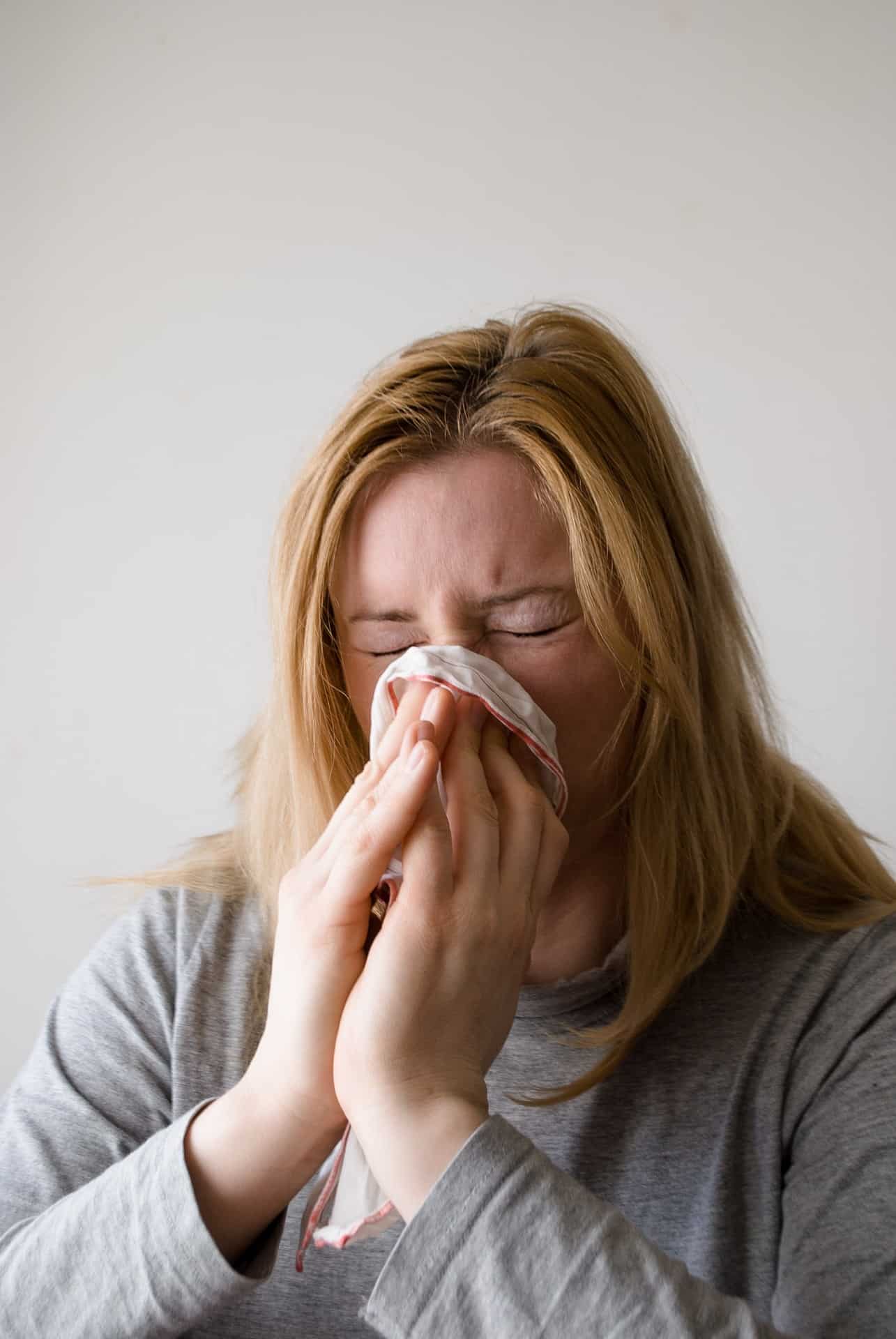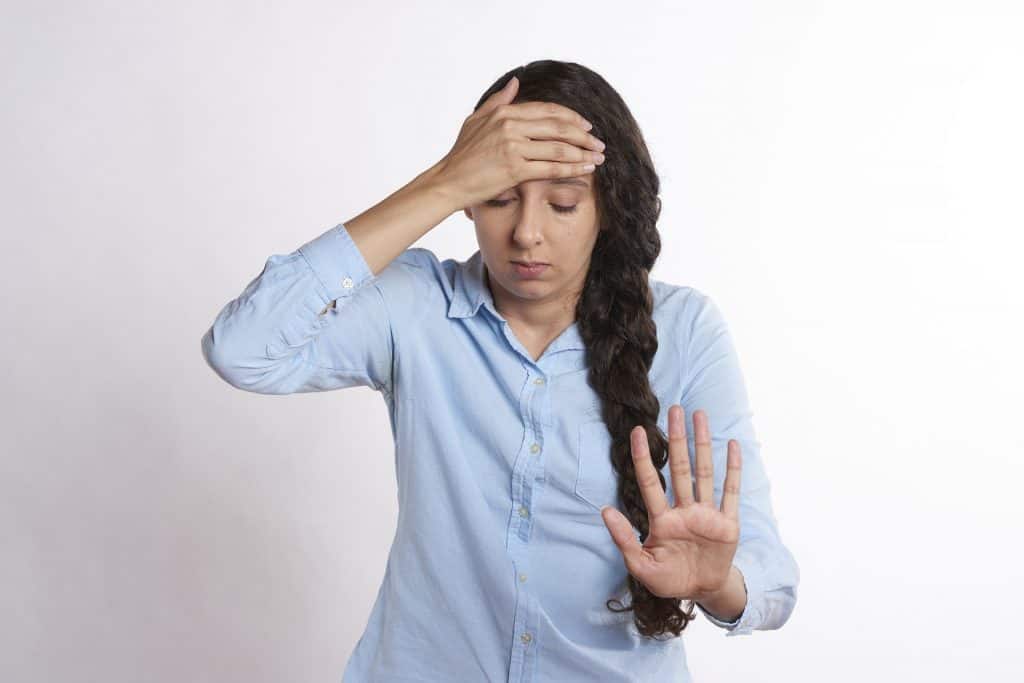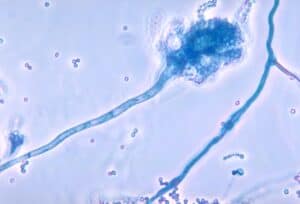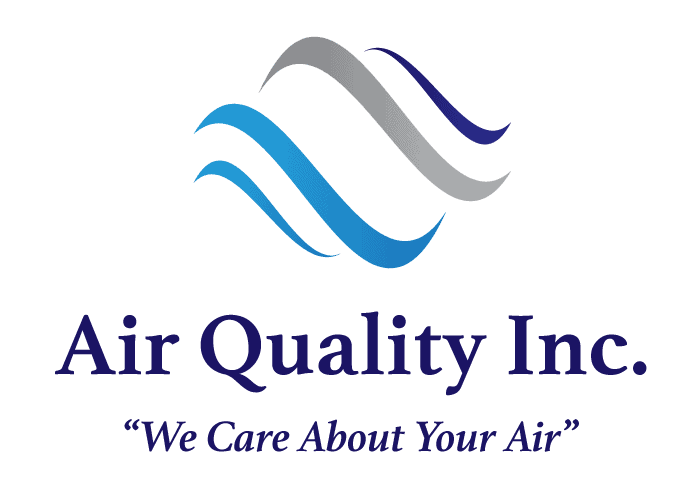Have your sick days been running low lately? You come home from work one day not feeling well, so you take the next day off work. You think you have recovered, but then, once you get back to the office, you start feeling squeamish all over again. It has happened over and over, and you’re starting to think this isn’t just some seasonal cold or allergies.
You could be right.
You (and your office) could be suffering from symptoms associated with Sick Building Syndrome (we’ll refer to it as as SBS).
That is why we are back here at Air Quality Consultants with our Mold in the Media Blog Series, reporting on the public health concern that is Sick Building Syndrome.
Sick Building Syndrome in the Media
A recent USA Today article by Maurie Backman featured the quizzical title “Taking a lot of sick days at work? It could be sick building syndrome”.
Backman exposes the reality that office buildings (high-rise buildings, in particular) and their occupants nationwide could be suffering from Sick Building Syndrome without actually realizing it.
The impact of living or working in a ‘sick’ building stretches even further than having to cope with the symptoms. SBS can actually affect productivity, worker satisfaction, and secular achievement.
Think about it:
If you are taking days off left and right because of a sickness you can’t identify, and then when you do go to work, you are uncharacteristically lacking focus, how could you expect to excel at what you do? Even worse, how will your life be affected if every day you come home from work feeling ill?
Yes, SBS is something worth investigating.
What, then, are the symptoms of SBS? How can you know if it is your work space that may be causing your health problems, and what should you are dealing with Sick Building Syndrome?
Symptoms of Sick Building Syndrome
A study by Sumedha M. Joshi from the Indian Journal of Occupational and Environmental Medicine reports that Sick Building Syndrome has been associated with these symptoms:
- “Headache,
- dizziness,
- nausea,
- eye, nose or throat irritation,
- dry cough,
- dry or itching skin,
- difficulty in concentration,
fatigue, - sensitivity to odours,
- hoarseness of voice,
- allergies,
- cold,
- flu-like symptoms,
- increased incidence of asthma attacks
- and personality changes.”

Of course, one must not be hasty in attributing any of these symptoms on their own to Sick Building Syndrome, since a number of other illnesses could mimic such symptoms.
However, in the case where there is not identifiable illness and the symptoms seem related to hours passed inside the building, SBS is a possibility worth looking into.
The report expounds “The sick building syndrome (SBS) is used to describe a situation in which the occupants of a building experience acute health- or comfort-related effects that seem to be linked directly to the time spent in the building. No specific illness or cause can be identified.”
Most victims affected by SBS report that their symptoms dissipate relatively soon after leaving the building. That being said, some more long-lasting affects may occur in some cases, depending on the cause of the building’s ‘sickness’.
Generally speaking, SBS deals with acute symptoms that manifest themselves immediately. For this reason, other serious threats to a building’s safety, such as radon or asbestos, though dangerous, are not included among causes of SBS, since the health effects associated with these problems typically appear long after exposure.
Some Causes of Sick Building Syndrome:
- Lack of proper ventilation
- Poorly maintained HVAC systems
- Hidden or visible mold
- Allergens (dust mites, pollen, etc.)
- Volatile Organic Compounds (VOCs)

What to do if you Think Your Office has Sick Building Syndrome
One study conducted by the Taiwan Association for Aerosol Research on how indoor air pollutants and Sick Building Syndrome symptoms connect and affect hospital workers concluded that SBS is a health threat that cannot be ignored, considering the ramifications for human organ systems.
Speak up About Sick Building Syndrome!
It is always a good idea to start by comparing notes with coworkers. Ask if they have had any similar symptoms and if they have ever considered that it may be connected to the actual building, not a particular identified illness.
Consult Your Doctor About SBS
Discuss your symptoms, concerns, and questions about SBS with your general practitioner. Ask if your symptoms could be attributed to anything besides SBS. Keep an open mind, but try to understand if your symptoms point to any other identifiable illnesses.
If your colleagues are not experiencing similar symptoms, your doctor may discuss with you how some people are simply more susceptible to being affected negatively by a certain environmental changes.
“Of course, some people are just naturally sensitive to environmental triggers that aren’t necessarily dangerous – like recycled air as opposed to the fresh kind that flows in through windows,” continues Backman from the USA Today article referenced at the beginning of the post.
In the case that your office conditions are negatively affecting your health as an individual, Backman recommends asking management if an arrangement for working from home could be made, or at least suggests taking breaks a few times a day to step outside for fresh air. If worse comes to worse, finding a new place of work could be the final solution.
Ask Management to Investigate for SBS
Still, if you and your coworkers are suffering potential SBS symptoms, a very important step is speaking up and consulting upper management about the problem. Document your health issues, encourage your colleagues to do the same, and then present the proof to the company.
Management may choose to launch an investigation to address your concerns. Your company may want to check out this helpful questionnaire for SBS investigations starting on page 30 of Sick Building Syndrome – A Practical Guide by the Commission of the European Communities Directorate General for Science.
A note on litigation:
“If you have documented health issues and your company refuses to address your complaints, you might consider taking legal action. This especially holds true if a medical professional warns that your current ailments might have long-term repercussions, and nobody in charge took steps to do anything about it,” counsels Backman.
Air Quality Testing for Sick Building Syndrome
Most of the causes from illnesses related to sick building syndrome affect the air we breathe, and therefore affect our health. Typically, what threatens the air we breathe along with our wellbeing goes unseen by the human eye. For this reason, professional air quality testing is needed to help qualify and quantify the sources that could be causing SBS.

Backman explains, “If your company owns the building, it might need to sink resources into running air-quality tests and addressing issues that are plaguing employees – but that’s a cost it will need to bear if it wants to continue running.”
It’s true, funding a SBS investigation is not a budget item that any company wants to have to think about. However, it is a necessary step to ensure the health and safety of a building’s occupants. Investing in creating a healthy environment at the office is actually in the best interests of companies that want to increase productivity and morale among employees.
After 28 years of serving the Richmond and Virginia Beach communities, here at Air Quality Consultants we have the experience it takes to provide a clear snapshot of what is threatening a building’s air quality.
Our experience pairs with our state-of-the-art air quality testing tools to ensure accuracy and give you the peace of mind you need. AQC provides speedy yet top quality air quality testing results that will help your company decide what steps need to be taken, if any, to restore the building’s air supply to health.
Learn more about our Virginia Air Quality Testing Services or Request a Quote. We will be more than happy to answer all of your questions and do everything we can to help you investigate your Sick Building Syndrome.
Don’t forget to stay tuned for the next edition of our Mold in the Media Blog Series!




